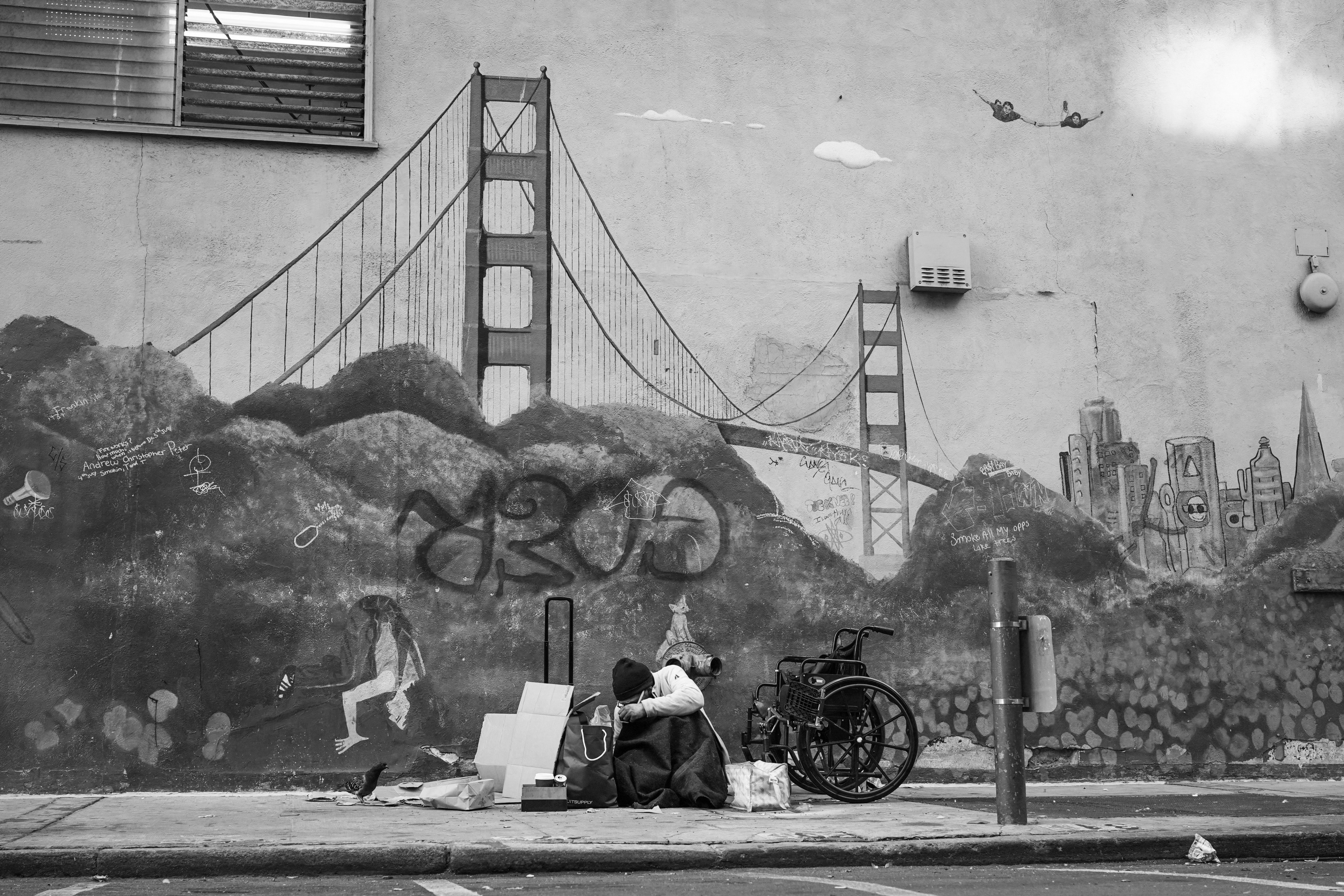Brands die. Just ask Lord & Taylor, Blockbuster or the California Republican Party.
Even city brands die.
If it’s not dead already, San Francisco’s brand is clearly on life support. It happened because officials allowed 4,400 people to destroy it. That’s the number of unsheltered people in the city’s official 2022 point-in-time count, and they have essentially held the city’s reputation hostage.
I take no joy in this analysis. I spent 25 years covering San Francisco as a reporter and anchorman at KPIX-TV (CBS). After I retired, my husband and I left the city and joined what I call the gay diaspora in Palm Springs. I miss San Francisco, but I realize that much of what I miss no longer exists. I’m missing a ghost.
It was easy to see this coming. My job gave me a backstage pass to how the city was deteriorating. I first noticed the change 20 years ago. I did many stories about Haight Street merchants dealing with aggressive panhandlers, acid-etched graffiti on their windows and pit bulls belonging to homeless people scaring away customers. After someone threw a glass bottle at my cameraman on Haight Street, I refused to do more live TV shots there.
The Haight has now morphed from the scene of the Summer of Love into a place where a restaurant owner was punched in the face by a man urinating in the street and another temporarily closed his burglarized business, posting a sign that said “Sinking Into a Sea of Lawlessness.”
A series of district attorneys who didn’t believe in prosecuting criminals didn’t help. DA Terence Hallinan had the worst record in the state in the late 1990s, winning convictions in only a third of his cases. His replacement, Kamala Harris, refused to seek the death penalty for a cop killer, drawing widespread condemnation from police and a rebuke from Sen. Dianne Feinstein at the funeral of the officer, Isaac Espinoza. George Gascón famously became the co-author of Proposition 47, which lowered the penalty for smash-and-grab thefts under $950 to misdemeanors. And Chesa Boudin, who was kicked out of office by voters in 2022, never seemed to realize that voters expected him to be a public prosecutor, not the public defender he once was.
Nor did it help when Mayor London Breed announced cuts of $120 million from the police and sheriff’s department budgets in 2020. The cops got the message. Who could blame them for feeling disrespected and less aggressive about fighting crime? They also got the message when uniformed police were initially banned from marching in the 2022 San Francisco Pride Parade. It would be tempting for those cops to sit in their patrol cars and wait for their pensions rather than risk their lives for strangers.
I understand the political left’s reluctance to take a stricter stand on homelessness and crime. Liberals, at their core, are kind and compassionate. Right-wingers have an easier job just saying no. The trouble is, as anyone in long-term recovery knows, you can love someone to death. A stable society requires setting boundaries, putting public safety first and enforcing laws.
Many of those same liberals have now reached what Gov. Gavin Newsom calls “compassion fatigue.” Even the great liberal former Gov. Jerry Brown said the state needs to adopt mandatory drug treatment and mental health intervention. Those who oppose required treatment might be surprised to learn they are on the same side as former Gov. Ronald Reagan, who in 1967 signed a law to end the institutionalization of patients against their will.
When she was mayor, Feinstein told me no American mayor expected the double wave of homelessness and AIDS that washed over cities like San Francisco in the early 1980s. But it was another mayor, Willie Brown, who opened my eyes to how broken the city’s solutions to homelessness and drug addiction were.
Brown was always unguarded with me, including one afternoon when I sat with him at lunch at Le Central, one of his favorite haunts. I suddenly realized how naive I was when he slowly leaned across the table and said to me sotto voce, “San Francisco is not going to solve homelessness. Period.”
The difference between the Feinstein and Brown years and today is that the public is out of patience. A 2022 Bay Area Council poll found that 70% of voters agree, “It’s time to get tough on the unsheltered who refuse shelter and treatment.”
San Francisco has faced challenges before, of course. The city dealt with the 1906 and 1989 earthquakes, the “Zodiac Killer,” the “Zebra” murders, the Jonestown cult massacre, the Milk and Moscone assassinations and even the AIDS tragedy, which killed over 25,000 San Franciscans.
But this crisis feels different. You don’t rebuild public trust and assuage people’s fears about crime and civic breakdown overnight.
The solution may be as simple as Newsom’s frustrated call last year for San Francisco just to enforce the “damn laws” against open-air drug dealing and selling stolen merchandise on street corners. It would also mean a more aggressive response to grand theft, shoplifting and car break-ins. The city certainly cleaned up many streets by enforcing anti-camping laws during last year’s Asia-Pacific Economic Cooperation Conference. But permanently doing those things would require city officials to admit their progressive policies have failed.
I’m not convinced the city’s current political leadership has the courage to do that. San Francisco politics are tribal; many leaders are too afraid of looking “conservative” in a liberal town if they take a tougher approach. But the public backlash is real, and it may be the spark the city needs to stop hugging criminals, even if local politicians are the last to realize it.
Hank Plante is an Emmy and Peabody Award-winning journalist who has spent four decades covering California issues.
